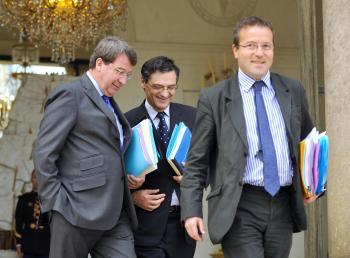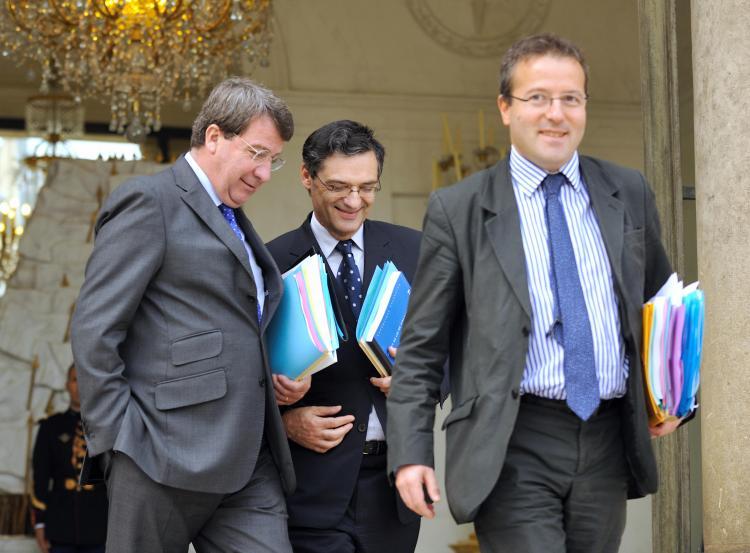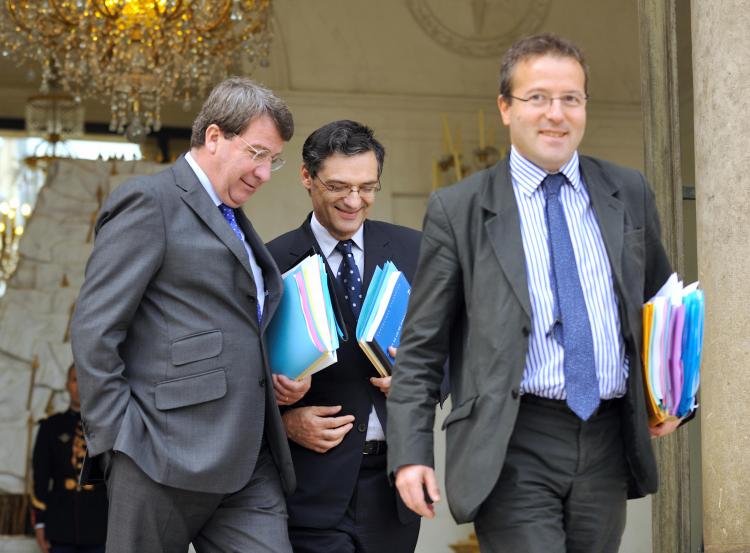PARIS—French High Commissioner for Active Solidarity Martin Hirsch has created a controversy in both left-wing and right-wing parties in France by starting the pilot phase of a project aimed at favoring the hard work of secondary school students by offering monetary rewards.
“Money for good students,” wrote newspaper Le Parisien on Oct. 2, initiating debates in the press.
On Oct. 5, the “fight” against class absence began when three professional schools in the Paris eastern suburbs introduced a financial bonus system aimed at funding “educational projects” prepared by students. If students would fulfill their engagement of good behavior and assiduity in class, a bonus between 2,000 and 10,000 euros (US$3,000–15,000) would be given to them and used to finance school trips or driving license exams.
“This experiment is both a collective one and one nurturing responsibility,” Mr. Blanquer, the regional head of education was quoted as saying by Le Parisien. “We want to develop the sense of responsibility of these teenagers, by explaining how the projects they like are linked to how they engage in their studies.”
In one school, the milestone of success has been set at less than 5 percent absence (versus 12 percent on average) and an average score of 11/20 (equivalent to C+) for 75 percent of the students, explains Le Figaro.
Facing controversy over the experimentation, Minister of Education Luc Chatel tried to flatten things down, saying “We are trying many experimental approaches, and this is only one of them.”
Yet even among government members there is no unity on the subject. Minister of Research and Higher Education Valerie Pecresse said she was concerned the move could create deleterious deviations.
“Assiduity is the first duty of a student. Should we pay for this?” the minister was reported as saying by Le Monde newspaper.
Parent unions such as left-wing FCPE are also indignant about this “new concept of society where everything including students can be labeled as ‘for sale.’” Other right-wing unions such as the PEEP also doubt whether the experiment will be a success.
Martin Hirsch is likely to have a hard time defending the project. Faced with criticism, the high commissioner said he was aware the move can be a “cultural shock,” asking, however, to wait for the results of the experiment and then “accept it if proof can be made that this is highly efficient.”
“Money for good students,” wrote newspaper Le Parisien on Oct. 2, initiating debates in the press.
On Oct. 5, the “fight” against class absence began when three professional schools in the Paris eastern suburbs introduced a financial bonus system aimed at funding “educational projects” prepared by students. If students would fulfill their engagement of good behavior and assiduity in class, a bonus between 2,000 and 10,000 euros (US$3,000–15,000) would be given to them and used to finance school trips or driving license exams.
“This experiment is both a collective one and one nurturing responsibility,” Mr. Blanquer, the regional head of education was quoted as saying by Le Parisien. “We want to develop the sense of responsibility of these teenagers, by explaining how the projects they like are linked to how they engage in their studies.”
In one school, the milestone of success has been set at less than 5 percent absence (versus 12 percent on average) and an average score of 11/20 (equivalent to C+) for 75 percent of the students, explains Le Figaro.
Facing controversy over the experimentation, Minister of Education Luc Chatel tried to flatten things down, saying “We are trying many experimental approaches, and this is only one of them.”
Yet even among government members there is no unity on the subject. Minister of Research and Higher Education Valerie Pecresse said she was concerned the move could create deleterious deviations.
“Assiduity is the first duty of a student. Should we pay for this?” the minister was reported as saying by Le Monde newspaper.
Parent unions such as left-wing FCPE are also indignant about this “new concept of society where everything including students can be labeled as ‘for sale.’” Other right-wing unions such as the PEEP also doubt whether the experiment will be a success.
Martin Hirsch is likely to have a hard time defending the project. Faced with criticism, the high commissioner said he was aware the move can be a “cultural shock,” asking, however, to wait for the results of the experiment and then “accept it if proof can be made that this is highly efficient.”







